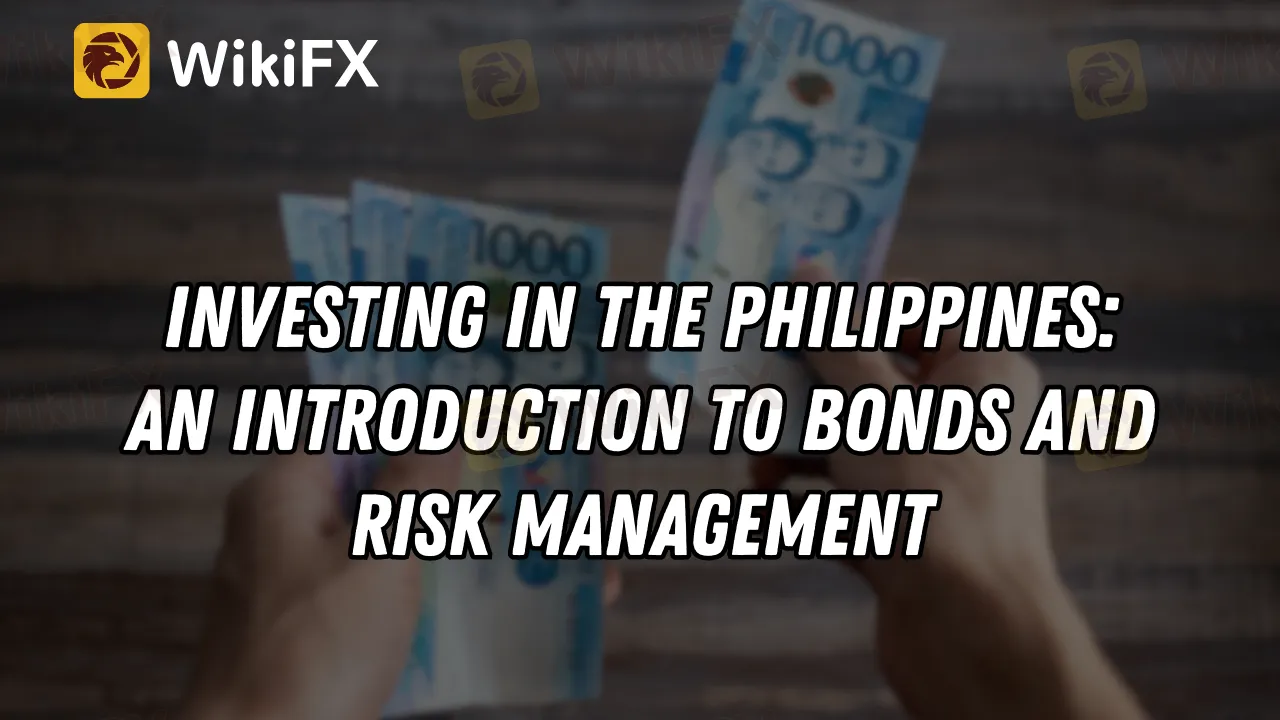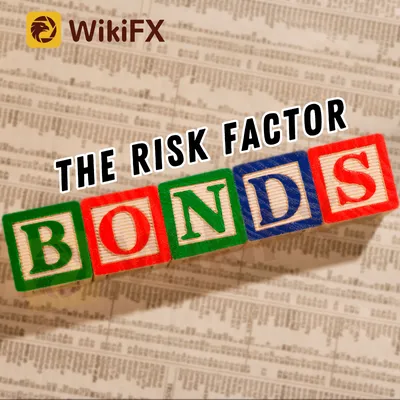简体中文
繁體中文
English
Pусский
日本語
ภาษาไทย
Tiếng Việt
Bahasa Indonesia
Español
हिन्दी
Filippiiniläinen
Français
Deutsch
Português
Türkçe
한국어
العربية
Investing in the Philippines: An Introduction to Bonds and Risk Management
Abstract:Discover the potential of bonds as a lower-risk investment in the Philippines. Learn about government and corporate bonds, their benefits, and associated risks.

In an economic climate characterized by uncertainty, making sound financial decisions can be challenging. Yet, amidst the turmoil, many Filipinos are discovering investment opportunities to increase their income sources. Two popular investment vehicles include stocks and mutual funds, but they come with inherent risks. This has led many Filipinos to explore the relatively safer avenue of investing in bonds, an often overlooked but attractive alternative.
Understanding Bonds: A Simple Primer
Bonds are a kind of investment that is categorized as a passive asset. They are essentially promissory notes between the investor and the issuer, which might be the government or a private company. When an investor buys bonds, they are effectively lending money to the issuer. In exchange, the issuer promises to repay the principal as well as monthly interest payments throughout the duration of the bonds.

Let us use a simplistic example to demonstrate this notion. Assume the Philippines government wants to fund 50 billion pesos for an infrastructure project but only has 5 billion pesos available. It can raise this money by issuing bonds worth 5 billion pesos. Individuals, organizations, and even foreign governments can buy these bonds and essentially lend the government the money it needs. When the bond matures after its tenure, the investors (also known as creditors or debt-holders) can claim their debt along with the promised interest.
Classifications of Bonds in the Philippines
Bonds in the Philippines are classified into two types: government bonds and business bonds.
The government issues government bonds, often known as sovereign bonds. These bonds may be auctioned off to institutions that may distribute them to individual investors, or they may be offered directly to the public.
Corporate bonds, on the other hand, are issued by private firms that are publicly traded on the stock market. Companies may issue bonds to generate finance for corporate development or to keep operations running.
The Risk Factor: Evaluating Bond Investments
Investing in bonds, particularly sovereign bonds, is often seen as less hazardous than investing in stocks or mutual funds, the prices of which may change drastically depending on market circumstances. Given the Philippines' consistent economic development, the chance of the government defaulting on bond payments is minimal, making government bonds a relatively risk-free investment.

However, no investment is completely risk-free. Unpredictable big events, such as a revolution or an unexpected increase in foreign debt, might result in a default, however, this is exceedingly improbable in a steady development environment like the Philippines.
The risk profile of corporate bonds is slightly different. If the issuing corporation were to go bankrupt, the remaining assets would be liquidated to repay any outstanding debt. Since bonds represent a debt obligation, holders of corporate bonds have a higher priority and are likely to be repaid before stockholders.
Advantages and Disadvantages of Bond Investments
Advantages:
Lower Risk: Both sovereign and corporate bonds in the Philippines represent a less volatile investment compared to stocks, which can swing drastically with market trends.
Portfolio Diversification: By adding bonds to an investment portfolio, investors can balance potential losses from higher-risk investments.
Fixed Income: Bondholders receive periodic interest payments, providing a steady, predictable income source.
Better Interest Income: Compared to savings accounts and time deposits, the income generated from bonds typically yields a higher interest rate.
Disadvantages:
Risk of Default: While the risk is relatively low, there is still a possibility that an issuer could default on its bond payments, especially in dire economic situations.
Opportunity Cost: Although bonds offer stable returns, they usually do not have the high-profit potential associated with riskier investments like stocks.
How to Invest in Bonds
Investing in bonds in the Philippines requires a tax identification number (since bond gains are subject to a 20% tax), a bank account, and a minimum of P10,000 in cash. Bonds may be acquired directly from the Bureau of Treasury's authorized selling agents, via brokers in the secondary market, or indirectly through bond funds such as mutual funds or unit investment trust funds.

Who Should Invest in Bonds?
Investing in bonds may be suitable for:
First-time investors looking for a safe entry into the world of investing.
Experienced investors aiming to diversify their portfolio and balance riskier investments.
Individuals seeking regular income to supplement household expenses.
Retirees desiring additional periodic income.
Investing in bonds in the Philippines can be a wise decision for those seeking to balance their investment portfolio and mitigate risk. While no investment is without potential downsides, the stability, regular income, and lower volatility of bonds make them an appealing option for both novice and seasoned investors.
What Makes Bonds a Safe Investment?
Bonds are often seen as a safer investment than stocks or mutual funds. The fundamental reason for this is that bonds provide consistent yields. When you buy a bond, the issuer guarantees to repay your investment plus a specific rate of interest over a set period of time. This means you know exactly how much money you'll make from your investment.
Stocks and mutual funds, on the other hand, might change substantially as a result of market conditions, making returns less predictable. Because of their volatility, these investments are riskier, but they also offer the potential for large gains.
When you purchase bonds, you are basically lending the issuer money. In the event of a financial crisis or bankruptcy, bondholders take priority over shareholders in the transfer of the company's assets. This is just another reason why bonds are seen as more safe than stocks.
Risk Factors Associated with Bonds
While bonds are generally considered a low-risk investment, they're not entirely risk-free. Here are some of the risks associated with investing in bonds:
Interest Rate Risk: Bond prices are inversely related to interest rates. When interest rates rise, bond prices fall, and vice versa. If you need to sell your bonds before maturity during a period of rising interest rates, you may receive less than the original investment amount.
Inflation Risk: If the inflation rate exceeds the interest rate earned on the bond, the purchasing power of the investment and its returns could be eroded.
Credit Risk: This refers to the risk that the issuer of the bond might default on their obligation to pay interest and principal on time. While this is rare with government bonds, the risk is higher with corporate bonds.
Liquidity Risk: Some bonds may be hard to sell or buy at a reasonable price, especially those that are not frequently traded. This risk is higher with corporate bonds than with government bonds.
Key Takeaway
Investing in bonds in the Philippines can be a smart move for those wanting a predictable income and a lower-risk investment option. Whether you are a first-time investor looking to step into the world of investments safely or a seasoned investor wanting to diversify your portfolio, bonds could be an ideal choice.
Remember, however, that investing always comes with some level of risk. Make sure to research thoroughly and consult with a financial advisor before making your investment decisions. Stay updated on investment opportunities and trends by using reliable resources like the WikiFX App. By being informed, you can take calculated risks and make sound investment decisions.
Download link: https://www.wikifx.com/en/download.html

In conclusion, bond investment in the Philippines is a viable route for the conservative Filipino investor looking to dip their toes into the world of finance without facing the intense volatility that can come with other investment options like stocks and mutual funds. As with any financial venture, knowledge is key. Armed with an understanding of what bonds are, how they work, and the inherent risks, anyone can confidently venture into this investment pathway and potentially reap the benefits.
Disclaimer:
The views in this article only represent the author's personal views, and do not constitute investment advice on this platform. This platform does not guarantee the accuracy, completeness and timeliness of the information in the article, and will not be liable for any loss caused by the use of or reliance on the information in the article.
Related broker
Read more

The Impact of Interest Rate Decisions on the Forex Market
Interest rate changes determine currency attractiveness, influencing capital flows and exchange rate trends. Understanding this mechanism helps investors navigate the forex market effectively.

How a Housewife Lost RM288,235 in a Facebook Investment Scam
A 47-year-old housewife in Malaysia recently fell victim to an online investment scam, losing a substantial sum of RM288,235 after engaging with a fraudulent scheme advertised on Facebook.

Interactive Brokers Launches Forecast Contracts in Canada for Market Predictions
Interactive Brokers introduces Forecast Contracts in Canada, enabling investors to trade on economic, political, and climate outcomes. Manage risk with ease.

Bank Negara Malaysia Flags 12 New Companies for Unauthorised Activity
Bank Negara Malaysia (BNM) has updated its Financial Consumer Alert List (FCA List) by adding 12 more entities, reinforcing its efforts to warn the public against unregulated financial schemes. Check if your broker made the list!
WikiFX Broker
Latest News
The Withdrawal Trap: How Scam Brokers Lure Victims into Paying More
FCA to Investors: Think Twice Before Trusting These Brokers
Trump\s tariffs: How could they affect the UK and your money
Trump gambles it all on global tariffs he\s wanted for decades
TradingView Brings Live Market Charts to Telegram Users with New Mini App
Trump tariffs: How will India navigate a world on the brink of a trade war?
Interactive Brokers Launches Forecast Contracts in Canada for Market Predictions
Authorities Alert: MAS Impersonation Scam Hits Singapore
IG Group Acquires Freetrade for £160M to Expand UK Investment Market
U.S. March ISM Manufacturing PMI Released
Currency Calculator







